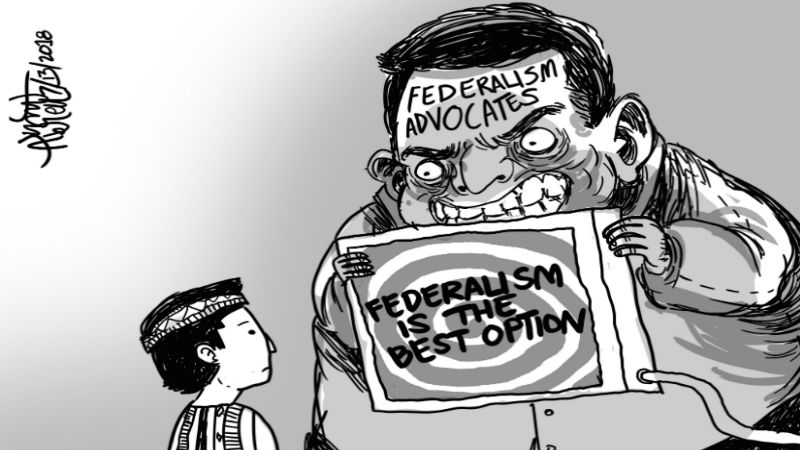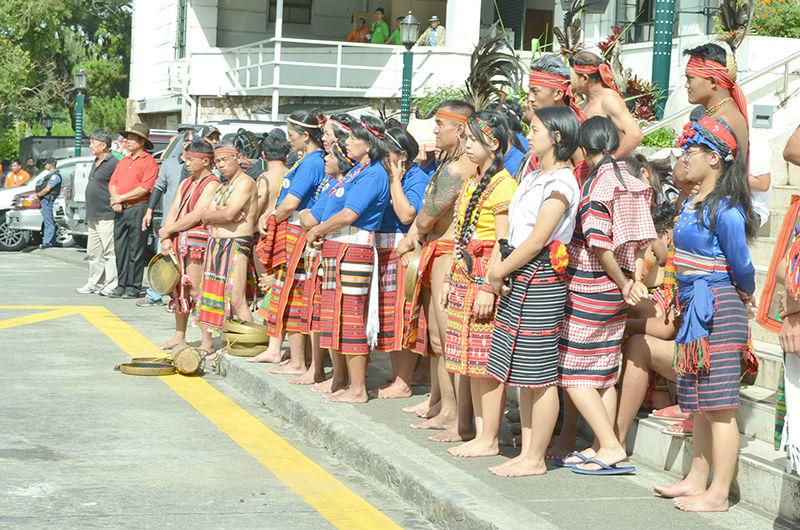The Cordillera and Muslim Mindanao are two of the regions in the country that were given special treatment in the Constitution, the fundamental law of the land, because the two regions have been mentioned to achieve autonomous status as the means of the national government to correct whatever injustices that were committed in the past wherein the said regions, although asymmetric, were deprived of equitable chances of growth and development that could have resulted to the putting in place of more development opportunities in the countryside.
The Autonomous Region of Muslim Mindanao was established in 1998 and was later expanded several years later while the CAR maintained its temporary status after two failed attempts to achieve autonomy primarily because of the watered down version of the autonomy law when the Cordillera had its first crack to establish an autonomous region during the plebiscite on January 30, 1990 where the people overwhelmingly rejected the said law. Only Ifugao province voted in favor of autonomy but the Supreme Court (SC) held that a province cannot constitute an autonomous region. The same scenario was repeated on March 7, 1998 when the Cordillerans again rejected the autonomy law that was submitted to them for ratification during a plebiscite primarily because there was lack of material time to campaign for its ratification considering that it was the presidential elections then and only Apayao voted in favor of the autonomy law.
In March 2006, the Regional Development Council (RDC) which was tasked to take over the functions of the defunked Cordillera bodies, the Cordillera Executive board (CEB), the Cordillera Regional Assembly (CRA) and the Cordillera Bodong Administration, embraced autonomy as its overarching agenda for growth and development. The RDC-CAR was able to lobby with the previous and present administrations the inclusion of meager funds for the region’s renewed quest for autonomy, especially in the conduct of the required baseline survey to ascertain the pulse of the Cordillerans in the region’s renewed quest for autonomy and the succeeding pulse surveys, information education campaign, capability building among others. For more than 12 years now, the RDC-CAR was able to gain headway in the region’s renewed quest for autonomy having convinced all Cordillera congressmen to file House Bill 5343 in the House of Representatives and Senate Bill 1678 in the Senate.
In 2012, the RDC-CAR embarked in the Unity Gong Relay as one of the major activities of the Cordillera month celebration wherein the gong, which is commonly used in the celebration of rituals ad festivals in the region, is circulated in the different provinces and cities to drum beat the region’s clamor for self-governance. Now on its 7th year, the Unity gong Relay was able to instill awareness among the people in the provinces the importance of achieving autonomy in terms of charting their development thrusts although most of the time, the informed sectors are the ones being met for the supposed information and education campaign.
With the planned shift from the present unitary system to federal form of government which is being strongly advocated by the present administration, there are some sectors who are still confused on the matter amidst the stand of the RDC-CAR which is autonomy towards federalism.
The decision of the Consultative Committee crated by President Rodrigo R. Duterte to review the possible amendment of the 1987 Constitution to divide the country into 18 federated regions, including the Cordillera and Bangsamoro autonomous regions, resulted to more confusion rather than solutions because there are still various sectors who want to muddle the issue to advance their own personal and political interests.
We condemn to the highest terms the federalism advocates who continue to sow confusion among the Cordillerans that federalism is the best option instead of autonomy towards federalism. Actually, the planned shift to federal form of government is still without legal basis at this point in time because the Constitution has not yet been amended. Our region’s renewed quest for autonomy has an existing constitutional basis that is why Cordillerans could proceed with achieving autonomy leaving behind the federalism options because it does not hold water yet.
Let us rally behind what has been provided with the legal basis which is autonomy towards federalism. Jet us not allow ourselves to be again misled by purported federalism advocates who want to muddle the issue so that the gains of the region’s renewed quest for autonomy will suffer a serious setback. Let us continue to elicit the support of lawmakers to enact the autonomy law so that we could proceed to the next step which is educating the people on the contents of the law that will be passed before subjecting the same to a plebiscite. Let us not lose track of the gains that we were able to achieve in the past that is why we should rally behind the region’s quest for autonomy because it will be our gift to our children’s children. We might not be able to enjoy the fruits of autonomy but we should not deprive the future generations of Cordillerans to reap the fruits of autonomy for us to achieve our vision for the next several decades.














